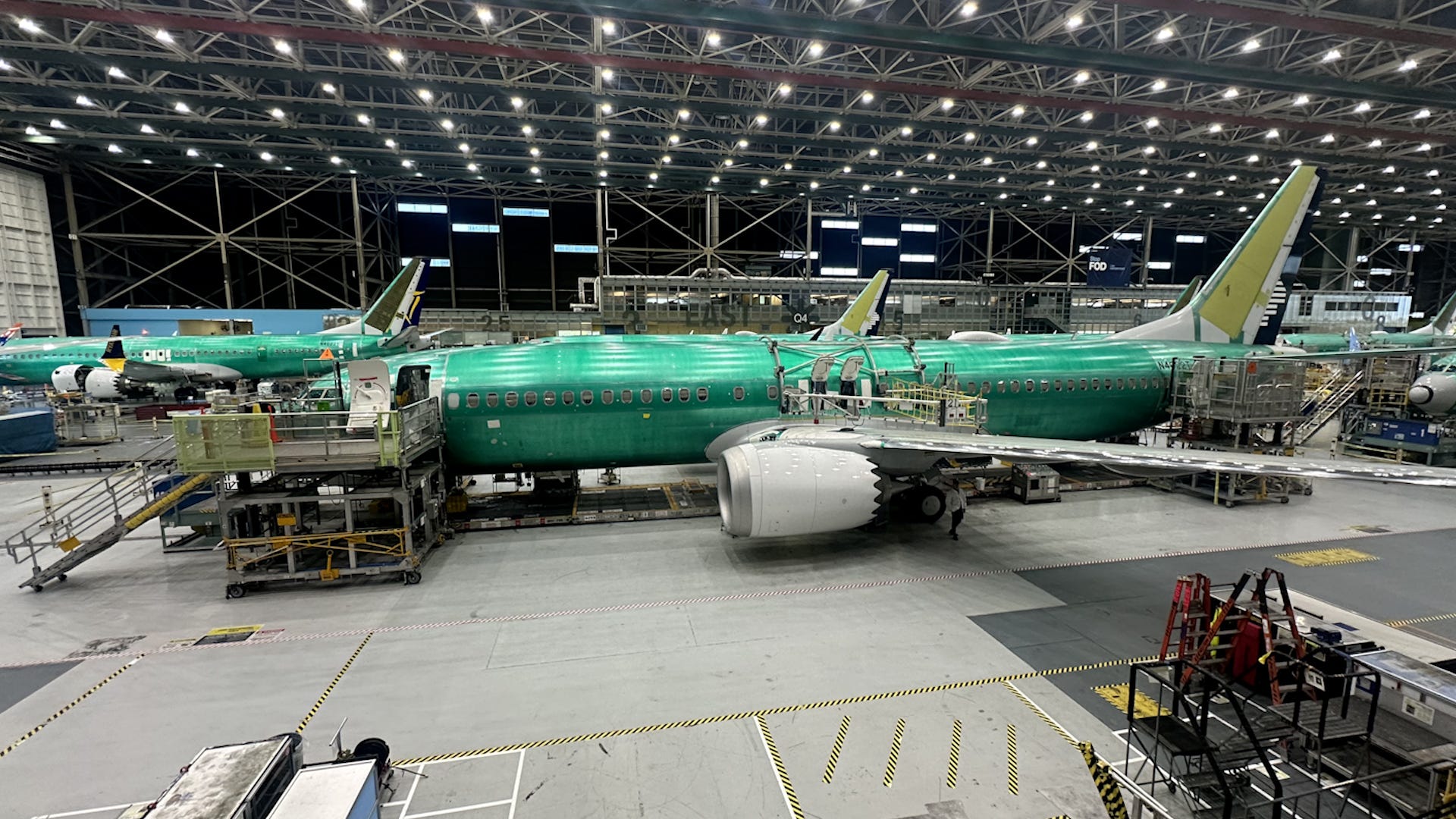Ntsb Blames Boeing Training Failures, Missing Bolts In 737 Max Door Plug Blowout

- An Alaska Airlines 737 Max lost a fuselage piece mid-flight, prompting an NTSB investigation.
- The NTSB attributes the incident to failures in Boeing's training, guidance, and FAA oversight.
- Recommendations include a new airworthiness directive for affected Max aircraft and a review of Boeing's safety culture.
The National Transportation Safety Board issued on Tuesday a series of recommendations to the Federal Aviation Administration and Boeing in response to the January incident in which an Alaska Airlines 737 Max lost a piece of its fuselage known as a mid-exit door (MED) plug shortly after takeoff.
According to NTSB chair Jennifery Homendy and the agency's report, the immediate cause of the incident were failures of Boeing's training and guidance procedures, and the FAA's oversight of them. The agency said that the door plug blowout resulted from missing bolts that were meant to secure it to the fuselage.
“The safety deficiencies that led to this accident should have been evident to Boeing and to the FAA, should have been preventable,” Homendy said during a hearing about the incident on Tuesday. “This time, it was missing bolts securing the MED plug. But the same safety deficiencies that led to this accident could just as easily have led to other manufacturing quality escapes and, perhaps, other accidents.”
Homendy also emphasized that no incident in aviation has a single cause, but that it's important to address the root issues after any mishap.
“An accident like this does not happen because of an individual or even a group of individuals. Aviation is much more resilient than that. An accident like this is only the result of multiple system failures," she said.
To that end, the NTSB issued nearly 20 recommendations to both Boeing and the FAA, including:
- Suggesting the FAA issue a new airworthiness directive for Max aircraft fitted with MED plugs requiring upgrades
- Suggesting the FAA improve its oversight compliance surveillance, auditing and recordkeeping standards
- Recommending the FAA establish a third-party panel to review Boeing's safety culture
- Recommending Boeing improve its on-the-job training programs and update its safety risk management procedures
While NTSB recommendations are non-binding, Transportation Secretary Sean Duffy said in a statement that the FAA is reviewing the NTSB's recommendations, and added that a production cap on 737 manufacturing remains in place while Boeing addresses its internal issues.
"The FAA has fundamentally changed how it oversees Boeing. We have strengthened our oversight to address systemic production-quality issues and ensure accountability," Duffy said. "We are closely monitoring Boeing’s performance, meeting weekly with company leadership to review progress and challenges in implementing necessary reforms. FAA safety inspectors are embedded in Boeing’s facilities, conducting targeted audits and inspections."
Boeing also said it is reviewing the recommendations.
“We at Boeing regret this accident and continue to work on strengthening safety and quality across our operations. We will review the final report and recommendations as we continue to implement improvements," a spokesperson said in a statement.
Zach Wichter is a travel reporter and writes the Cruising Altitude column for USA TODAY. He is based in New York and you can reach him at zwichter@usatoday.com.
Popular Products
-
 Sejoy Cordless Rechargeable Hair Trimmer
Sejoy Cordless Rechargeable Hair Trimmer$90.99$62.78 -
 Mini Portable Rechargeable Electric S...
Mini Portable Rechargeable Electric S...$33.99$22.78 -
 Sejoy Portable Cordless Water Flosser
Sejoy Portable Cordless Water Flosser$114.99$79.78 -
 Wine & Liquor Bottle Combination Lock...
Wine & Liquor Bottle Combination Lock...$25.99$17.78 -
 Ulanzi Waterproof Camera Sling Bag - 9L
Ulanzi Waterproof Camera Sling Bag - 9L$124.99$86.78